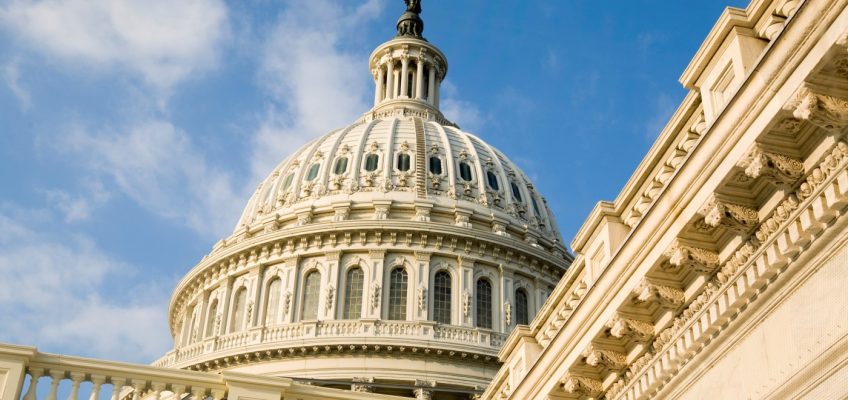Once again, Congress seems to be barreling toward a government shutdown. Once again, the process is likely to be costly, counterproductive and completely unnecessary.
As so often in recent years, Congress has yet to pass all 12 appropriations bills needed to fund the government on time. Unless a deal materializes, the lights will go out on Oct. 1. Republicans were able to pass a mostly party-line bill in the House on Friday but will need bipartisan support to overcome a filibuster in the Senate.
With this bit of leverage, Democrats are thinking of forcing a shutdown to induce certain policy concessions. Although their goals are legitimate, closing the government won’t further any of them.
Last week, party leaders aired two main objectives. The first concerns health-care policy. Enhanced Covid-era tax credits for insurance bought on Affordable Care Act exchanges are set to expire at the end of the year, potentially raising out-of-pocket costs by as much as 75% and jeopardizing coverage for 4 million people. This would indeed be a bad outcome and extending the subsidies is a reasonable priority.
A second concern is that the White House keeps refusing to spend money appropriated by Congress. In July, it requested a “rescission” of about $9 billion in foreign-aid funding and media subsidies (which Congress partly accepted) and in August asserted the right to cut another $4.9 billion effectively without legislative consent. Again, Democrats have a point: This maneuver is anti-democratic, probably illegal and worth fighting over.
The problem is that a shutdown won’t address either concern. Across five decades of these fights, the party demanding concessions has almost always taken the blame in the court of public opinion and has almost never accomplished its goals. In this case, a minority in the Senate would be defying majorities in both chambers as well as the president in pursuit of unrelated policy changes. It’s hardly a winning hand.
Moreover, closing the government is costly in itself. A 16-day shutdown in 2013 led to perhaps $6 billion in lost output and $2 billion in added costs. That’s to say nothing of the harm to services: Air travel may be disrupted, Food and Drug Administration inspections halted, benefits delayed, data releases postponed, national parks shuttered and much else. Hundreds of thousands of workers would likely be furloughed without pay.
Rather than picking this unwinnable fight, Democrats should agree to a stopgap funding bill, then do the hard work of negotiating compromises and winning elections.
A bipartisan deal on the Obamacare subsidies — ideally one that includes a long-term extension in return for gradually moderating tax credits for the highest earners — should be achievable: Neither party wants to see big premium hikes in an election year. As for “pocket rescissions,” a court challenge is underway; the Government Accountability Office has deemed the practice illegal; and half a dozen prominent Republicans, including the Senate majority leader, have publicly broken with the president on the topic. Should the White House attempt further such gambits, a bipartisan rejection seems likely.
More important for Democrats is that they have a good chance of winning the House and making gains in the Senate next November, so long as they don’t blow it by engaging in stunts like this. Midterms historically favor the opposition party, and the president remains quite unpopular. If they wish to advance their policy goals and reassert authority over a wayward executive, the ballot box is the place to do it.
— The Bloomberg Opinion Editorial Board
Related Articles
Bret Stephens: Now the left cares about free speech again
Commentary: Why the government’s subversion of data is so dangerous
Trump says he was victim of ‘triple sabotage’ at UN and Secret Service is looking into the matter
Federal judge refuses to reinstate eight former inspectors general fired by Trump administration
Judge rules feds can’t require states to cooperate on immigration to get disaster money


Leave a Reply